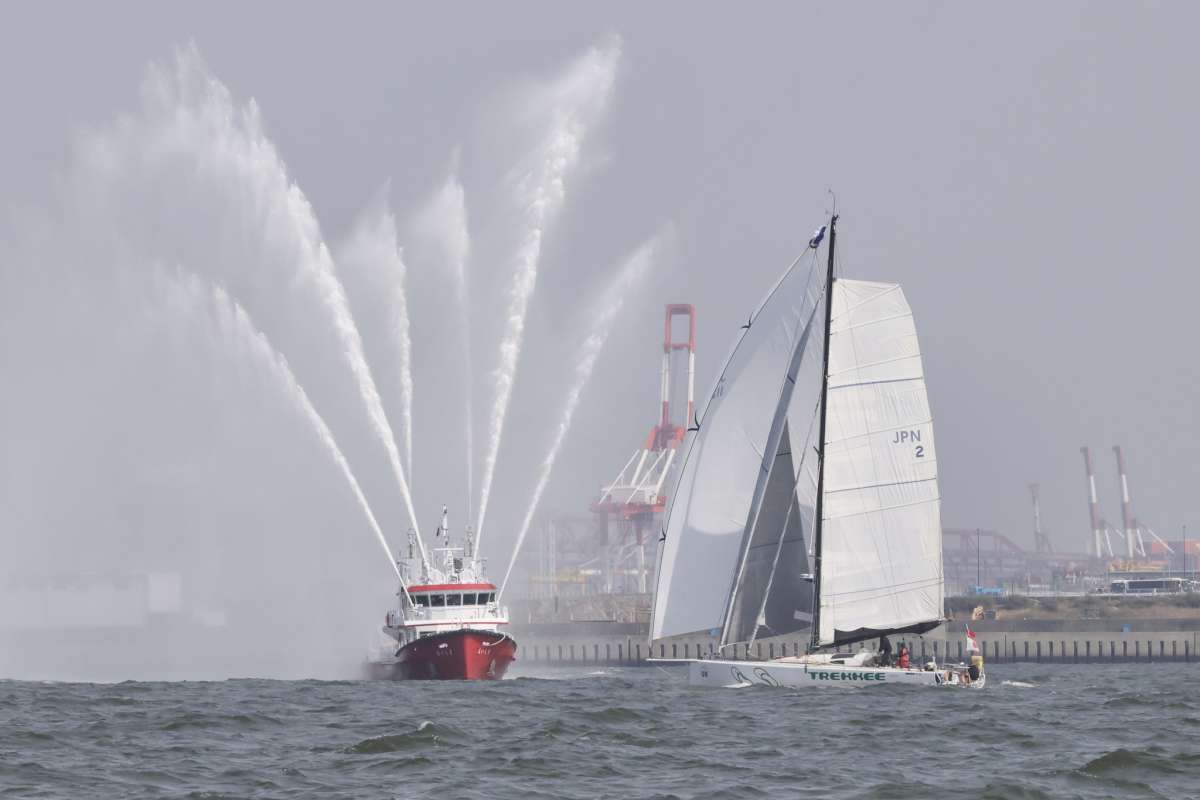
Although it has robbed the race of some interest, the tragedy of the 2015 Rolex Sydney Hobart is not the withdrawal of eight-times winner Wild Oats XI with a torn mainsail or 2011 winner Perpetual Loyal with rudder damage. Their professional crews will be disappointed at not finishing but most have done the race many times before and will be back next year.
The real tragedy occurred 300 metres from the startline when Cougar II, ARK323 and Lupa of London were involved in two separate collisions. Can you imagine sailing all the way from England, China or Tasmania to be in the toughest offshore race in the world? You have paid a large amount of money to enter and insure your boat. You have done long qualifying voyages to be allowed to start. Your crew has paid for their Sea Safety and Survival course and spent the time to get qualified. You have booked massively expensive accommodation in Hobart which is always full at this time of year. You have come a long, long way to fulfil your dream and it's all over before the gun is even fired!
The Jury has ruled on the incident between Lupa of London and Cougar II and found Cougar, on port tack, misjudged their ability to cross three starboard tack boats.
Optimist Logic
Whenever a collision occurs in a race I am reminded of a sage piece of advice given by America's Cup star Adam Beashel to the Optimist Green Fleet at Sail Sydney last year. During the pre-race briefing, Adam looked at the intent faces of the six- and seven-year-olds preparing for their first ever sailing race and he offered them this gem: “All you need to know at your stage of racing is if the bow of your boat hits another boat, you're probably in the wrong.”
I've been in plenty of club races where there have been minor collisions. It always staggers me how intelligent, mature men, mostly successful in business to be able to afford their boat, can have so little knowledge of the rules of sailing.
In the Beneteau Cup a few years ago we were beating down Sydney Harbour on starboard, happily stacked on the windward rail when suddenly the skipper threw a crash tack and we were under water on the leeward side. Another boat, obviously on port tack, had come straight at us and had failed to either tack or duck our stern. When confronted afterwards his response was, “We were going really well and I didn't want to tack.”
I was out twilighting earlier this month when a similar thing occurred. A port tacker just kept coming straight at us and we had to take evasive action.
I was also on an Etchells a few years ago when the skipper decided there was room for us between another Etchells and the start boat. Despite the other skipper yelling, “Don't go in there!” he went, hitting both the other boat and the start boat. He maintains to this day that he had rights on his side. He didn't!
Currently, the only solution to these continual incidents is for more club sailors to protest. I've been “to the room” as a witness on several occasions and it's an unpleasant and time-wasting experience. But if we're to clean up the act of those who don't know the rules, it's essential.
If skippers who barge or bash don't get protested, they'll keep doing it. Some because they know they will get away with it, others because they have no idea of what they're doing out there.
Yellow Card
Because a full, formal protest is so time-consuming and can sour relations between skippers and crews for life, perhaps we could look at a half-way house – a yellow card.
When the incident occurs, the boat that's been infringed would display a yellow flag. On finishing the race, the skipper would report the incident to the race committee with the rider that he doesn't want to make a formal protest but thinks the offending skipper should receive a warning.
The race committee would then approach the offender with details, get his side of the story and if convinced he (or she) was in the wrong, issue a yellow card warning. If the same boat gets two (or perhaps three) yellow cards in a series they will not be allowed to start in the next race. (If the blame can't be determinded, both skippers could get a green card, with two greens equalling one yellow.)
That would be a low-impact way of letting habitual offenders know that they have to buy a rule book and change their game.
And it just might mean that in future Sydney Hobarts there are no collisions in the pre-start that rob people of their lifelong dream.
– Roger McMillan
PS: Once blame has been apportioned for this year's bingle, wouldn't it be a nice gesture from the CYCA to say to those who were in the right that they have free entry into the 2016 race and their crew credentials and qualifying journeys will remain valid for 12 months?
Watch interviews with three of the boats here, courtesy of Boats on TV:

























